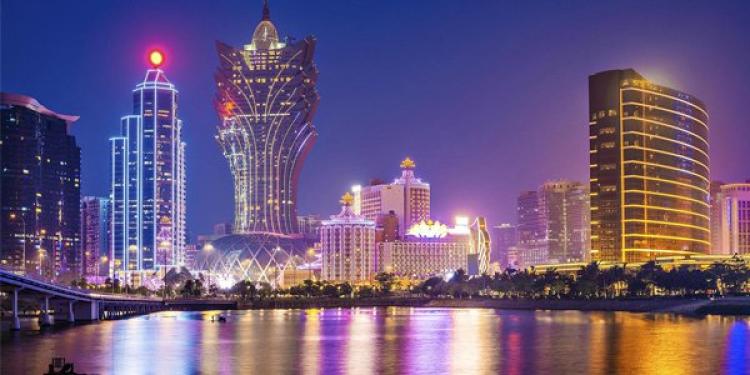Once Upon A Time in Macau: The Rise and Fall of Sin City of the East
Posted: December 1, 2015
Updated: October 6, 2017

• The rise and fall of Macau’s gambling empire
• Macau’s economy continues to slide
• Launch of new VIP casino Studio City
Alcohol. Prostitution. Tobacco. Triads. Gambling. Macau did not earn its title as Sin City of the East for nothing. This former Portugese colony was the kind of town where you’d end up reeking with the smell of cigarettes and empty pockets, or worse still, a huge debt before you can comprehend what happened if you were not careful enough with handling temptations.
Since the 19th century, gambling had always been a major feature of the Macau scene. The industry began to heighten to its peak when STDM (Sociedade de Turismo e Diversões de Macau), an investment syndicate organized by local tycoon Stanley Ho with other Hong Kong investors, became responsible for the gambling monopoly which grew to dominate the economy and society in March 1962. Thus, Macau was officially born as Sin City of the East.
For many who have been following gambling news closely, the name Stanley Ho is certainly not at all foreign. Over the years, Ho not only grew to be one of the most prominent and influential local business figures and a gambling magnate; but also a patron of host to many cultural and historical projects in Macau through his role as a Trustee of the Macau Foundation.
Tourism to fill in the void of Migration from Macau

The gambling industry in Macau continued to grow under Ho’s monopolistic reign as the STDM diversified its operations to include participation in the construction of Macau’s first international airport which led to a peak in gambling oriented tourism – a staple of Macau’s economy for many years to come.
It eventually expanded into filling the void left by the migration of manufacturing industry to neighbouring parts of China during the 1980s. In 1982, the Macau government extracted a fee of P$1 billion for a renewal of the gambling monopoly. The income from taxes and charges on gambling eventually became the mainstay of the government’s income as they grew from approximately 14% of government revenue in 1980 to over 33% by 1995.
By 1996, gambling and associated tourism reached its boom as Macau strived to become a one-industry town. Employment in ‘commerce and hotels’ as well as ‘transportation’ combined stood at 34.7% of the workforce in a town with a population of slightly over 400,000. It was recorded that tourist arrivals peaked at 8.15 million before it began to decline.
Diversified Structure Marks the Fall of Ho’s Monopolistic Reign in Sin City of the East
In 1999, the STDM opened its 10th casino in Macau. With that, gambling revenue made up of 58% (out of P$ 9.3 billion) of Macau’s economy by then. However, the industry also began to see a decline as tourist arrival dropped to 6.95 million in 1998 – largely reflecting the regional financial crisis.
Apart from the declination in tourism, the industry was plagued with other facilitation problems ranging from prostitution to the infiltration of criminals into aspects of its operations via illegal “sub-letting” of the monopoly’s gaming and poker rooms to doubtful figures. Crime rate carried out by triads continued to climb as colonial authorities appeared powerless to deal with the rise in violent crimes in which some of its own officials were victims.
As an effort to liberalize Macau’s gambling industry and to prevent its economy from collapsing, the new Macau administration decided to grant licenses to two other international casino operators in addition to the STDM after Macau was returned to China’s sovereignty in 1999.
Thus, officially marking the end of Ho’s monopolistic reign in Macau’s main revenue industry in 2001.
End of an Era for Sin City of the East?

With a reformed structure and diversification, Macau continued to enjoy many years of economy growth and prosperity. By the end of 2014, there were already a total of 35 casinos operating within its territory. However, it was in the same year that Macau began to see the fall in revenue for the first time since the liberalization of the industry in 2001 due to the Chinese government’s nationwide anti-corruption campaign and stricter Chinese gambling laws.
The decline has brought upon serious impact on Macau’s economy and employment rate as VIP casinos were shut down thus forcing its workers out of employment. Despite major casino operators’ intense effort to revive the industry, the situation is still looking bleak – especially when revenue in the gambling industry continues to plunge in 2015.
If Macau has been entirely reliant on one industry for long to keep its economy rolling, could this spell the end of Macau?
The Big Boys of Macau Invest Big on Big Names in New Casino Launch
After a 17-month-long lull in casino openings in Macau, James Packer (owner of Melco Crown Entertainment) and Lawrence Ho (son of Stanley Ho) launched Macau’s latest VIP casino, Studio City, following their partnership.
It was reported that the duo had paid Leonardo DiCaprio, Robert De Niro, and Martin Scorsese a whopping sum of $17 million each to present The Audition, a short film bankrolled by Packer’s production company, at the launch of the $4.5 billion movie-themed casino.

However, the question remains: Will bringing in the big names do the trick of reviving the gambling industry in Macau, let alone survive the intensified gambling crackdown by the Chinese government?
To date, the only legal form of casinos in Macau are land based casinos as the government still does not issue online casino licenses there. However, there is a huge database of online casinos that accept players from Macau. Find out more about online gambling in Macau on our online guide.












